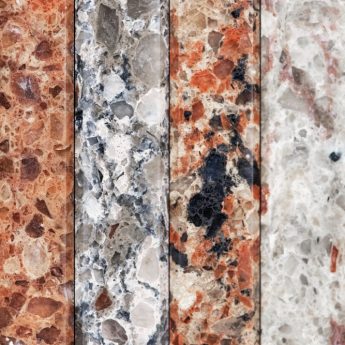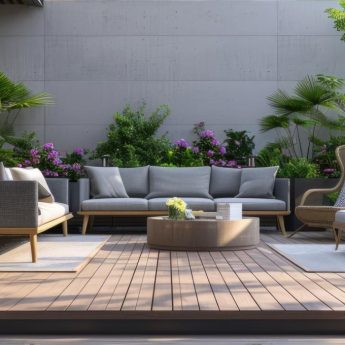What Kinds Of Air Filters Are In The Market?

For every homeowner, indoor air quality is vital, especially if a family member has respiratory issues or allergies.
Buying the proper air filter can be the difference between poor indoor air quality and clean air that is easy to breathe.
Good air quality can help you sleep better, feel more relaxed, or focus more easily. To enhance your home’s air quality with the best air filters, buy here.
What Are Air Filters?
Air filters are devices designed to remove particles, pollutants, and impurities from the air, improving air quality in homes, vehicles, and industrial settings.
Their primary purpose is to trap contaminants like dust, pollen, pet dander, and microorganisms, preventing them from circulating and protecting both people and equipment.
The filtration process involves air passing through a filter medium, which captures particles based on size.
Fine mesh or fibrous materials trap smaller particles, while larger ones are blocked earlier in the process. Some air filters use additional layers or electrostatic charges to enhance filtration efficiency.
Key components of an air filter include the filter media, responsible for trapping particles; the frame, which provides structure and support; and the seal, ensuring no unfiltered air bypasses the system.
Together, these components ensure effective performance, making air filters essential for maintaining clean and breathable air in various environments.
What Are the Most Common Types of Air Filters?
There are seven air filter types available on the market today, each with its pros and cons.
Depending on your HVAC specifications and needs, you can find excellent air filters for your HVAC system at affordable prices. Considerations such as owning pets or mold indicate how often your air filters need to be changed.

Air filter materials can go from fiberglass to fabrics. Moreover, all the air filters are rated using the minimum efficiency with reporting value (MERV). This rating process is created by the American Society of Heating and Refrigerating and Air Conditioning Engineers (ASHRAE).
The rating goes from 1 to 20, where 1 is the lowest level of filtration and 20 is the highest and most effective.
Every filter is different, and when you are planning to buy air filters for your home. Here are a few factors which you must check for selecting your air filters.
#1. Pleated Filters
Pleated filters are generally made of polyester fabrics or cotton folds and usually have a MERV rating ranging from 5 to 13. The pleats in these air filters give them an advantage over the non-pleated option, as they increase the air filter’s surface area for better filtration.
Usually, more pleats provide better filtering than fewer pleats because they trap and filter problematic pollutants or allergens like pet dander, mold spores, or cockroach mites.
If you are ever worried about your home’s indoor air quality, pleated filters may be just what you need. Pleated filters are the most common air filters available on the market.
You can find them in both disposable and reusable formats, and luckily, they suppress the noise of your HVAC fan. They are also a reasonably-priced option for homeowners that last long.
#2. Media Filters
When it comes to media filters, they provide about the same level of filtration as a high-MERV filter. However, they do so without the negative impact of airflow or even static pressure.
Media filters generally have a larger surface area and are incredibly easy to maintain. They trap and filter airborne contaminants and pollutants such as viruses, bacteria, pet dander, mold spores, cockroach debris, and so on.
Some significant advantages of air filters and media filters are their cost-effectiveness and sturdiness; they only need to be changed once or twice a year.
#3. Washable Filters
While some air filters are disposable, washable filters are environmentally friendly. Truth be told, washable filters have a higher initial price, but if installed and cleaned correctly, they can last for several years.
To ensure they work efficiently, washable filters must be maintained and dried perfectly before putting them back in. Understanding that moisture can lead to mildew growing on the filter and entering the air you and your family breathe is vital.
Washable filters tend to have a lower MERV rating than pleated or media filters, but they can be a long-term investment if you don’t have needs and preferences about your air filter type.
#4. HEPA Filters
The U.S Department of Health strongly recommends high-efficiency particulate air (HEPA) filters because they can remove up to 99.97% of airborne contaminants, allergens, and pollutants.
In fact, HEPA air conditioner filters can trap and filter mold spores and dust small as 0.3 microns. If you or a family member has asthma, allergies, or other respiratory issues, you can benefit from HEPA filters the most.
Compared to other air filters, HEPA filters must be installed by a professional. But when you are installing this type of filter, make sure you are following the proper process of the maintains. This way, you can increase the life of the air purifiers which are having the HEPA Filter.
Activated Carbon Filters
These filters work with activated carbon that absorbs odors, chemicals, and volatile organic compounds (VOCs) present in the air.
These particles get trapped on the porous surface of the carbon, hence improving the quality of air. Activated carbon filters are best fitted for kitchens, smoking areas, and industrial settings where odors and harmful gases are abundant.
UV Filters
UV filters use ultraviolet light to kill bacteria, viruses, and other microorganisms present in the air. The DNA of the microorganisms is disrupted, and UV filters sterilize the air by killing the pathogens. These filters are mostly used in hospitals, laboratories, and air purifiers to ensure a high level of disinfection and sterilization.
Electrostatic Filters
Electrostatic filters work by using an electrostatic charge to attract dust, pollen, and other pollutants. The charged particles stick to the filter, hence cleaning the air.
These filters are reusable and require very minimal maintenance. Thus, they are a very cost-effective option for homes and businesses.
Pre-Filters
Pre-filters are designed to catch larger particles of dust, pet hair, and debris before they get to the main filter. This helps to extend the life of the primary filter for better efficiency and performance.
Pre-filters are used in most air purifiers and HVAC systems as the first line of defense in air filtration systems.
The right air filter to use depends on your particular needs, whether it is removing odors, sterilizing the air, or catching larger particles.
Benefits of Using Air Filters
Air filters are an integral part of maintaining a clean and healthy indoor environment. They are critical in ensuring that the air you breathe is free from harmful particles, with numerous benefits for your home or office.
Improved Air Quality
Air filters remove dust, pollen, pet dander, and other allergens from the air. This helps to create a cleaner environment for people with asthma or allergies. Cleaner air means less dust on furniture and surfaces.
Protection Against Airborne Diseases
High-quality air filters would catch bacteria, viruses, and other microorganisms that cause diseases, therefore minimizing the chances of getting airborne diseases. This is most beneficial in homes with young children, elderly family members, or people suffering from a compromised immune system.
Odor Removal
Air filters equipped with activated carbon help eliminate unpleasant odors from cooking, pets, or smoke. This ensures your space smells fresh and inviting.
Enhanced Comfort
A good air filter reduces the levels of humidity because it catches the moisture-laden particles, thus creating a much more comfortable indoor environment. Moreover, cleaner air may enhance sleep and overall health.
Energy Efficiency
Air filters prevent dust and debris from clogging HVAC systems, allowing them to work more efficiently. This not only reduces energy consumption but also extends the lifespan of your heating and cooling equipment, saving money in the long run.
By incorporating air filters into your home, you invest in cleaner air, better health, and a more comfortable living space.
Ways To Choose The Right Ait Filter
Choosing the right air filter is paramount in maintaining clean air within your house while ensuring your HVAC system operates efficiently or your air purifier works optimally. Here are some essential factors to consider:
Think About Your Needs
If you have allergies or asthma, a high-performance filter can aid in capturing and removing allergens like dust, pollen, or pet dander from your home’s air. Homeowners with pets or smokers under their roofs often require filters to alleviate odors and fine particulates.
Know Your Filter Size
Always select a filter of the proper size, as specified for your device. Look at the size of your current filter, or take note of its dimensions—length, width, and thickness—and you are good to go. Selecting the wrong size might cause inefficiencies and gap infiltration.
Understand MERV Ratings
The Minimum Efficiency Reporting Value or MERV rates how effectively a filter will trap particles. A higher rating implies better filtration; however, it also cuts down airflow. Most residences will have MERV between 8 and 13, offering a perfect equilibrium between efficiency and airflow.
Consider Airflow Resistance
While improved filtration is a plus, high-efficiency filters can strain the system if airflow resistance is too great. Check with your HVAC manual to be sure they are compatible.
Maintenance and Replacement
Change the filters regularly, typically every 1 to 3 months, depending on usage and air quality. Regular checks and cleanings will help in keeping its performance at par.
Budget and Long-Term Costs
Determine whether to go for the disposable or washable ones based on budget allocation. Washable filters may tend to be cheaper over time but require proper washing to remain effective.
Common Mistakes When Using Air Filters
A common error is choosing the wrong size or MERV (Minimum Efficiency Reporting Value) rating for your system. If the filter doesn’t fit properly, it can’t work efficiently, and if the MERV rating is too high, it could strain your system.
Another error is not replacing filters regularly. Over time, filters become clogged, reducing airflow and effectiveness. Neglecting to replace them can lead to poor air quality and system damage.
People also overestimate the power of air filters. Yes, they will filter dust, pollen, and pet dander wonderfully well; however, they cannot clear the air of all types of airborne pollutants, including viruses and gases.
Finally, using low-quality or incompatible filters can be a costly mistake. Poor filters can damage your HVAC system or fail to provide adequate filtration, compromising both air quality and system efficiency. Be sure to choose the right filters for your needs and maintain them properly.
Air Filters in Various Settings
Air filters serve their purpose in air quality in many settings.
Home Use: Air filters are generally installed in the HVAC systems of houses, catching dust, allergens, and pollutants. They enhance indoor air quality and help provide a healthy environment.
Car Air Filters: The cabin air filter prevents dust, pollen, and other pollutants from getting into the cabin of a vehicle. They ensure that the air breathed by passengers is cleaner, which contributes to comfort and reduces allergy symptoms.
Industrial and Commercial Use: Air filters are important in industries, hospitals, and offices for the control of dust, fumes, and pathogens. Various kinds of filters, like HEPA and activated carbon, are used according to the environment. They prevent contamination in manufacturing and reduce the chances of airborne infections in hospitals.
Air filtration systems in large-scale environments contribute greatly to maintaining health standards, improving productivity, and ensuring clean air for employees and customers.
Final Thoughts
Manufacturers understand how vital your home’s air quality is for your health and comfort, so most provide excellent products at reasonable prices to ensure your home is comfortable and safe.
Choosing the right air filter for your HVAC system can alleviate any concerns you may have about your indoor air quality. Various types of air filters are available on the market. Whether you choose them by brand, size, or MERV rating, you will easily find what you are looking for.
All types of air filters remove allergens and pollutants but based on their MERV rating; some can trap and filter more airborne contaminants than others.
Additionals:











Leave A Reply